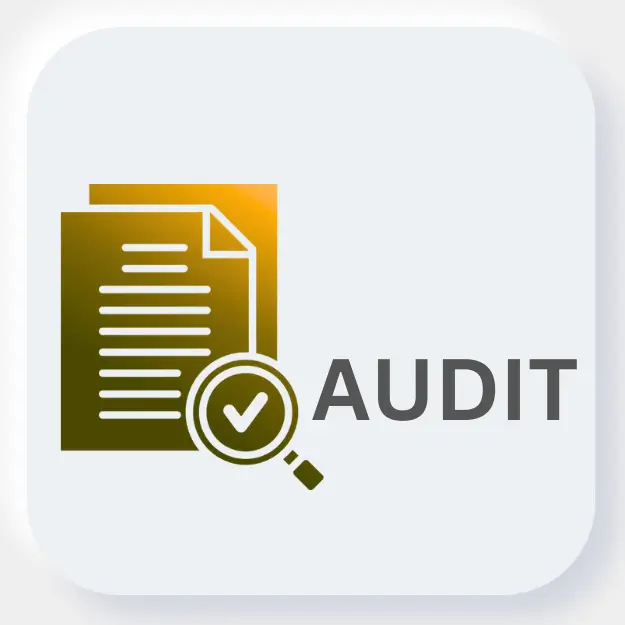
.webp)
































Every commerce student has that one moment when they’re reading through company law and suddenly stumble
upon
the term statutory
audit. At first, it feels like yet another heavy definition to memorize. Anyone who
has ever
stepped inside an audit firm knows this: a statutory audit isn’t some dry chapter you memorize for
exams. It’s a
living, breathing process. It’s hands-on, unpredictable at times, and, frankly, the kind of work that
shows you
just how much weight those numbers on paper really carry.
And this is exactly why statutory audits in India matter so much. They aren’t just about satisfying
regulators;
they protect shareholders, reassure employees, and teach young finance professionals the discipline of
detail.
In many ways, the annual statutory audit isn’t just a compliance formality—it’s a backbone of corporate
accountability.
The statutory audit meaning is simple: it’s an audit the law makes mandatory. Unlike internal audits,
companies
can’t skip it.
Imagine a small private limited company showing strong profits on paper. Everything looks fine—until the
statutory auditor digs into the books and finds revenue recorded before invoices were even issued. On
paper, it
looked perfect; in reality, it was misleading.
That’s why a statutory audit in India matters. It’s a reality check, ensuring financial statements tell
the true
story—not just for regulators, but for investors, employees, and anyone relying on the company’s
numbers.
That’s why the statutory
audit in India is so critical. Think of it like a compulsory exam every company
has to
sit for, with a Chartered Accountant playing the role of examiner. It’s not about catching someone
out—it’s
about making sure that financial reporting is truthful, reliable, and strong enough to earn trust.
Also read- How To Prepare For Statutory Audit Interview For CA Articleship.
When it comes to statutory audit applicability, many assume it only kicks in for large corporations. That’s a misconception.
One small start-up once thought it didn’t need an audit since their revenue was minimal. They ignored it—until they tried raising funds. Investors immediately asked for audited financials. That’s when reality struck: statutory audit wasn’t optional, and skipping it had cost them credibility.
For beginners stepping into their first audit season, the process can feel intimidating. But once you understand the statutory audit process step by step, it becomes far less daunting.
During one audit season, a junior associate noticed stock records didn’t match physical inventory. Initially dismissed as a clerical error, it later revealed a significant pilferage issue. This is exactly why having a statutory audit checklist for beginners is critical—it helps catch things that can snowball into serious problems.
Also read- Top 5 Mistakes to Avoid in Statutory Audits.
Now, how do you actually carry one out? Knowing how to do statutory audit is what separates exam knowledge from real-world competence.
In one firm, a fresh trainee ignored documenting cash verifications, thinking they were too basic. Months later, when a discrepancy was questioned, there was no paper trail. That one oversight became a hard lesson in why documentation is the backbone of statutory audits.
Companies can’t treat audits casually because the law lays down strict statutory audit rules for companies:
These aren’t just formalities—they exist to protect the audit’s integrity. Without them, the credibility of the financial system would collapse.
If you’re preparing for your very first audit, here’s a statutory audit checklist for beginners that will keep you steady:
Many freshers get so caught up in flashy areas like revenue recognition that they skip these basics. But time and again, it’s the fundamentals that reveal the biggest red flags.
Also read- Mastering Statutory Audit in CA: A Comprehensive Guide
In simple terms, a statutory audit is the audit that the law makes mandatory. A company doesn’t get to “opt out” of it. An independent Chartered Accountant goes through the books, checks whether the accounts are accurate, and then issues an opinion. In India, this legal requirement ensures that the numbers companies show are actually backed by records.
Case in point: A mid-sized trading company once reported impressive profits year after year. When auditors dug deeper during the statutory audit, they discovered inflated sales booked without proper invoices. The audit didn’t just fix their accounts—it saved investors from being misled.
Every registered company under the Companies Act, 2013 must undergo a statutory audit. There are no exceptions based on turnover or scale. Whether it’s a start-up in its first year or a giant listed corporation, the law treats both the same.
Many small business owners are surprised by this. One small tech start-up once assumed they were exempt because their revenue hadn’t even crossed ₹50 lakhs. But when they went to raise funding, investors immediately asked for audited financials. That’s when they realized—statutory audits aren’t about size; they’re about compliance.
The statutory audit procedure in India is fairly structured:
Example: In one manufacturing company, auditors noticed unusually high “repairs and maintenance” expenses. On testing, they found these weren’t repairs at all, but capital equipment purchases incorrectly recorded. Catching this early prevented a major misstatement in the accounts.
Yes, and the difference is huge. Internal audit is almost like a self-check which is done at management’s discretion to improve internal efficiency. Whereas statutory audit, on the other hand, is compulsory and carries a legal weight.
Think of it like this: internal audit is a mock test, but statutory audit is the final exam that everyone must sit for.
The statutory audit meaning goes way beyond being legal jargon in textbooks. It’s the mechanism that ensures companies can’t play fast and loose with numbers. For a CA student, understanding statutory audit applicability and the statutory audit process step by step isn’t just exam prep—it’s training for the real world.
Anyone who’s worked through an audit season will tell you: knowing how to do statutory audit isn’t only about standards and checklists. It’s about judgment, patience, and sometimes even intuition. Spotting a mismatch in ledgers, questioning an unusual entry, or realizing when something “feels off”—these are skills you only build when you’re in the trenches.
And for businesses, statutory audit is more than compliance. It’s a badge of accountability. A company with clean, audited financials builds investor trust far faster than one that delays or downplays its audits. At the end of the day, statutory audits may not make headlines, but they quietly hold up the credibility of India’s corporate sector. Without them, the system would run on assumptions, not assurance. And that’s a risk no economy can afford.